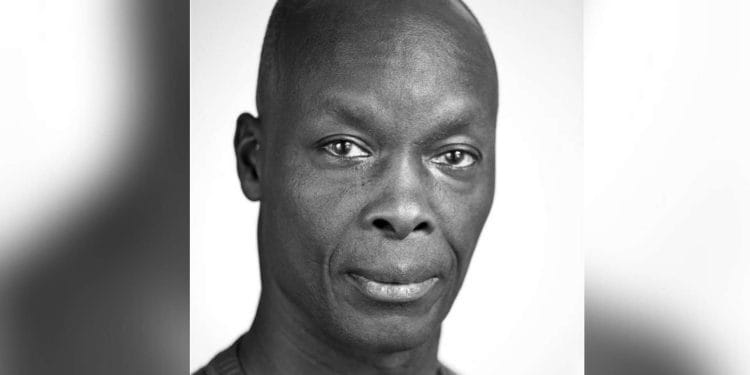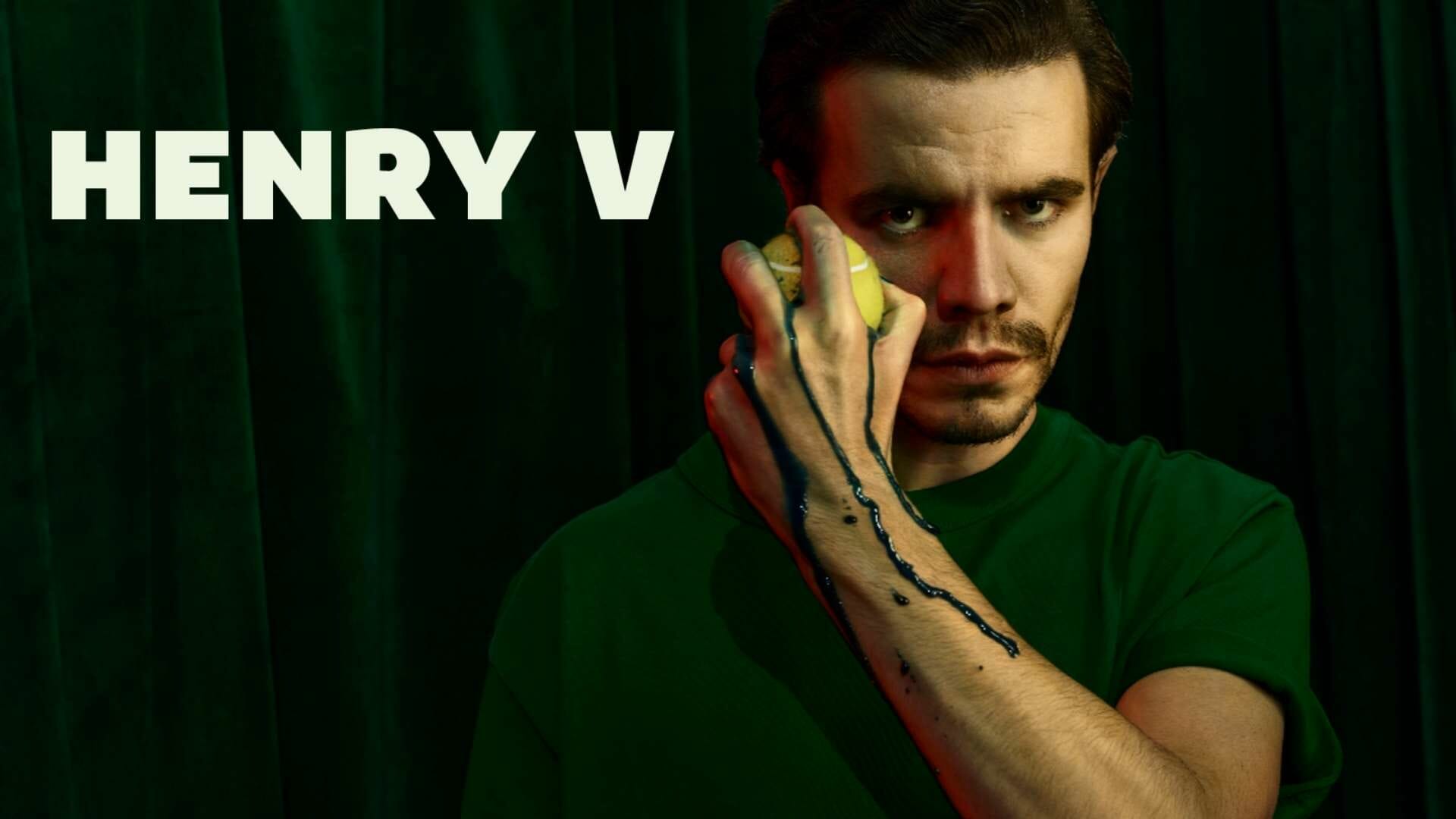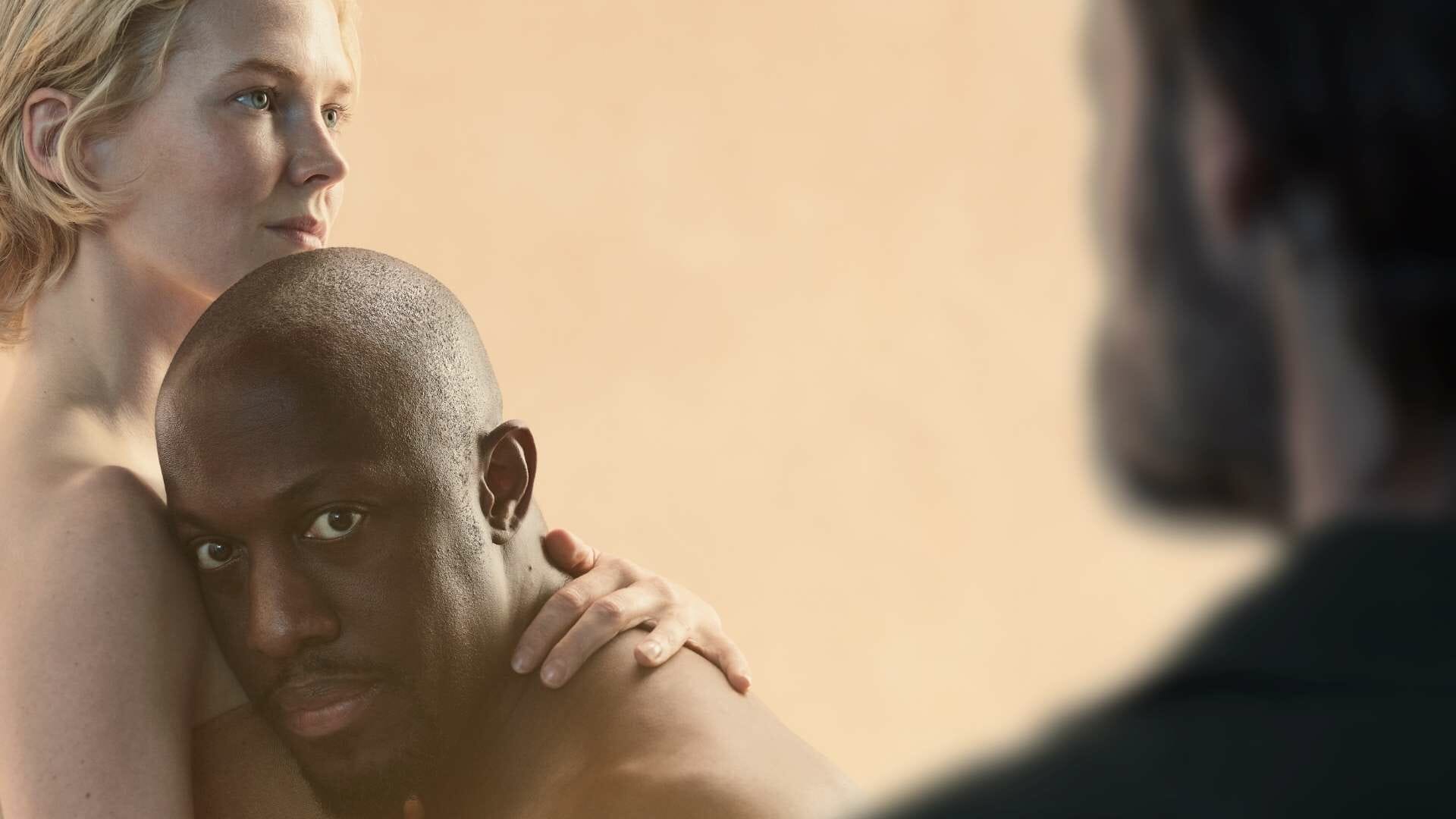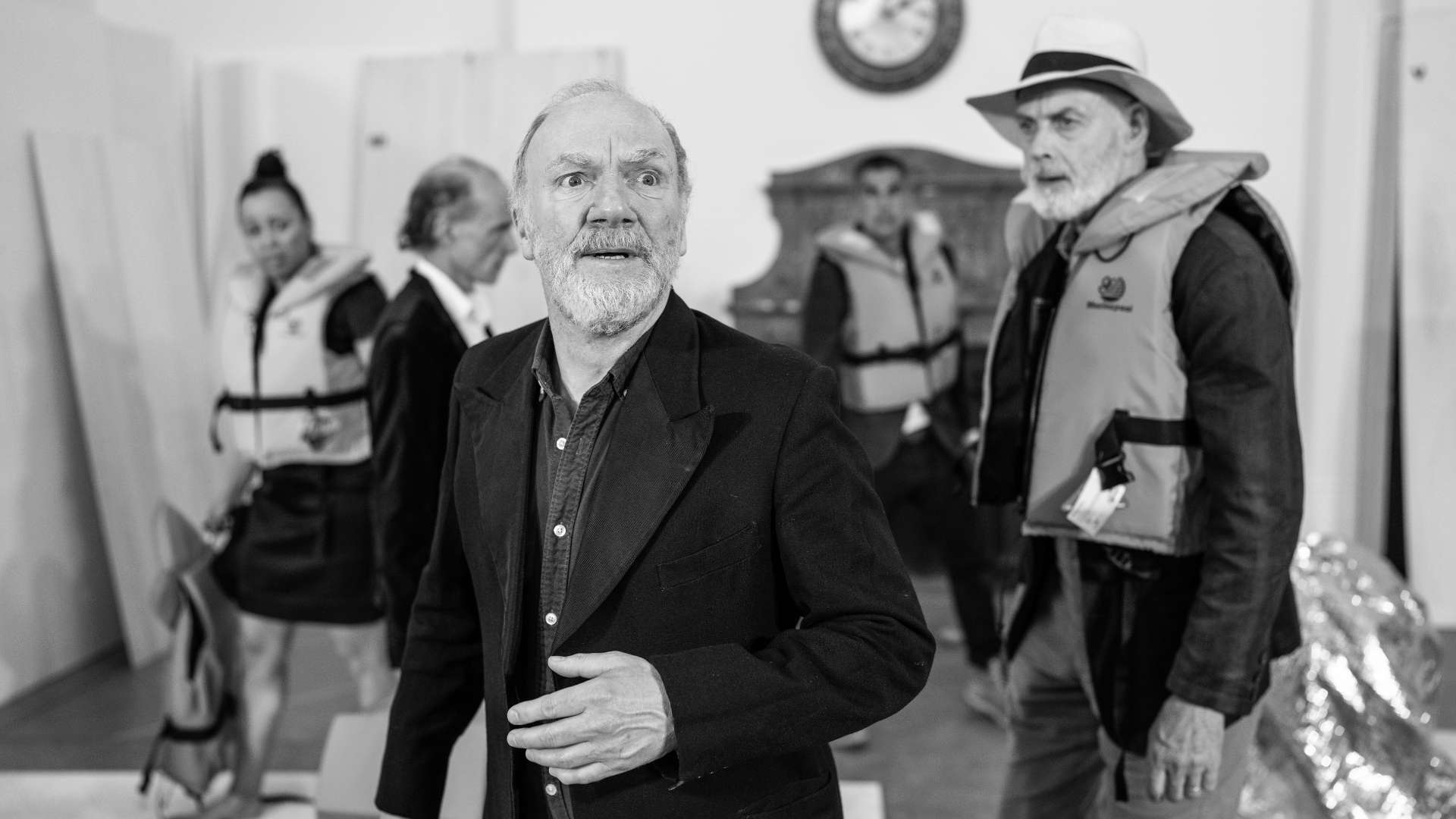Leo Wringer plays Camillo in SHAKE Festival’s rehearsed reading of William Shakespeare’s The Winter’s Tale.
The Winter’s Tale follows the success of previous livestreams, A Midsummer Night’s Dream, The Tempest, and Sonnets & Carols.
Directed by Jenny Caron Hall, the production will be streamed live via Zoom on Saturday 31 July at 7.30pm (BST). Tickets are available to buy via: www.ticketsource.co.uk/shake-festival-winters
You’re playing Camillo in The Winter’s Tale, what can you tell us about this production?
I like the way this production seeks to put feminine sensibility front and centre of the storytelling – an aspect of the play I’d not seen realised fully in earlier productions: but given recent topical events, how could it not?
As you know, the first three acts of The Winter’s Tale revolve around a scarily jealous King, Leontes, in full tyrannical meltdown, who accuses his 9 months pregnant wife, Hermoine, of adultery and treason. He imprisons her at a time when she’s about to deliver their daughter, which he then decrees must be taken far out of his kingdom and abandoned in some desolate place.
This production handles the story in a manner that allows the play to express what happens when innocence and love come up against untrammelled male power, and, in the struggle that ensues, how love can ultimately redeem all. Well … it helps to believe in fairy tales.
What can you tell us about SHAKE Festival?
This is my first encounter with the company, and, at time of writing, the advent of Covid19 has rather restricted social gatherings and travel. SHAKE Festival is based in the wilds of Suffolk in South East England, and has already established itself since opening a few years ago, as a company that aims to produce Shakespeare of high quality for all to see and enjoy. And, as a result of positive reactions to previous productions, it even enjoys an international reach.
What has the rehearsal process been like for The Winter’s Tale?
The rehearsal process has been carried out from our homes via Zoom, due to the vagaries of the pandemic and various lockdowns. However, I think we’ve rather made a virtue out of the fact that since we can’t meet one another in the flesh, we can at least make good use of the fact that Zoom affords us a degree of intimacy for the dialogue and our virtual presence.
Now that I realize that I can actually switch on/off my mic and video during the progress of the drama, (yes, I know, what can I say, I’m from the pre-tech gen), I can fool myself that I’m actually making entrances and exits as if I were on stage. Believe it or not I had visions we’d all be seen in our little boxes around the screen for the entire evening, as if we were contestants in an episode of University Challenge – poised, with finger on buzzer. I can breathe easy now.
Camillo is known for being honourable and honest, how do you bring that across in the performance?
Camillo is not only an invaluable advisor to the Sicilian state, and loyal to this king and queen, he’s also a man of moral rectitude. In order for the actor to convey just how honourable and honest Camillo is, Shakespeare puts him in a couple of critical life and death scenarios, that not only demands he brings his A game as a skilled diplomat to the situation, but also in so doing he reveals where his moral compass lies.
For example, in the first act, when he’s asked to poison Polixenes, he appears loyal to the increasingly unpredictable Leontes, but afterwards in the dialogue with the king’s intended target, Camillo’s resolved to do the opposite and instead works out the means by which they both can flee Sicilia with their lives.
What’s been the best advice you’ve been given from director, Jenny Caron Hall?
I hadn’t met Jenny before this, but I was aware of her theatrical pedigree, and based on that I knew that any advice I got would be coming from a rich place.
Jenny’s aim, among other things, is to see that each scene is communicated effectively, and that part of that effectiveness lies in the way we deal with the structure. So, to answer the question. Jenny’s advice to me was that if my character is speaking in blank verse, then care needs to be taken over where I’m taking the breath, so that the form of the verse could be maintained. Incidentally there are three separate occasions on which Camillo goes into prose and one of them is when he encounters the light fingered Autolycus.
I suspect at this moment it’s partly to do with the social hierarchy of the time. The significance of when Camillo speaks verse and when he moves to and from prose, could be otherwise diminished if one isn’t clear about the structure.
What would you say to anyone thinking of booking to watch The Winter’s Tale?
I’d say go ahead and book trusting that Shakespeare will as always weave his magic, transport you out of this world of lockdown anxieties, to worlds unknown though strangely familiar, to characters in extremis, who then find a path to a new understanding, where you can see the young lovers, Florizel & Perdita, ‘as twinn’d lambs that did frisk i’ the sun And bleat the one at the other’, and what with the odd shipwreck, sheepshearing, and old shepherd thrown in for good measure, you know you’ll be on quite an emotional rollercoaster. And just when you thought you’ve been safely strapped in all this time, there’s one more unexpected coup de theatre for you to savour and wonder at.
Of course, if none of the above appeals, then you could just find yourself exiting … pursued by a bear?

















